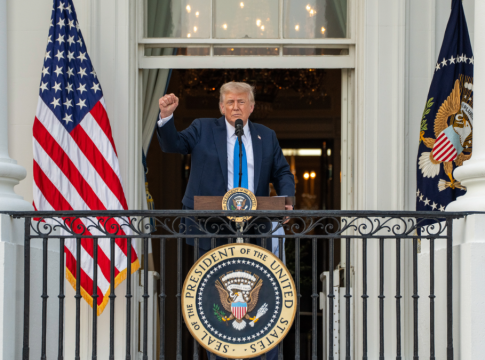The Intersection of AI and Defense: A New Era of Tech Power
As global competition heats up in the artificial intelligence (AI) landscape, tech companies are experiencing an unprecedented surge in influence over governments and military strategies. This shift is particularly evident with the U.S. government’s dramatic increase in defense spending aimed at enhancing AI capabilities, threatening to intertwine commercial technology with national security in ways that could shape future warfare and societal structures.
A Historic Defense Budget
President Donald Trump recently proposed a staggering $1 trillion budget for the Department of Defense (DoD), marking what could become the largest military spending package in U.S. history. This initiative is not merely a financial maneuver; it’s a tactical push towards incorporating AI tools across all federal agencies, particularly in response to rising tensions with global adversaries, especially China.
The Role of Tech Giants
Leading tech companies—IBM, Microsoft, and emerging startups like Palantir—are stepping into the defense arena, supplying the Pentagon with innovations in data analysis and computational power. Companies that once focused solely on consumer technology are now pivoting toward military applications. Following Trump’s re-election, firms like OpenAI and Amazon began forming partnerships with defense contractors to secure lucrative government contracts, indicating a shifting tide in the tech industry’s relationship with military spending.
New Partnerships
Recent collaborations, such as Meta’s partnership with Anduril to create augmented reality technology for soldiers, illustrate this trend. Meta’s chief technology officer characterized this transition as a return to Silicon Valley’s roots in defense, emphasizing that companies are just beginning to explore the potential in this space.
AI on the Battlefield
AI’s role in modern warfare is rapidly evolving. Programs like the Pentagon’s Project Maven leverage machine learning to analyze vast data sets swiftly, aiding in target identification for military operations. This is not merely about enhancing efficiency; we’ve entered an age where drones, equipped with AI, are capable of autonomous error-prone actions in warfare.
Dual-Use Technologies
The key feature of AI today lies in its dual-use nature—these technologies are developed for commercial purposes but can easily be adapted for military applications. For instance, AI tools initially intended for everyday consumer use are being repurposed for surveillance and military operations. This creates a concerning cycle where advancements in commercial AI not only contribute to military efficiency but also potentially compromise civilian privacy and security.
Implications for Society
The blending of commercial technology with national defense raises pressing questions about oversight and accountability. As tech companies deepen their ties to defense contracts, they may gain a level of influence over government operations and policies that bypass traditional checks and balances. Civilians, often unaware, play a role in this ecosystem, contributing to advancements that might later be utilized against them or modify social dynamics.
A Call for Transparency
As military expenditure continues to grow, the implications stretch beyond battlefield effectiveness; they risk entrenching corporate interests within the heart of national security. This burgeoning alliance between tech and military might represents a challenging crossroads for open societies, where the stakes of innovation are not merely technological advancements but also the preservation of democratic freedoms and individual rights.
In conclusion, as the AI race accelerates, its implications for both technology and society warrant vigilant scrutiny. The partnership between tech giants and the military has the potential to redefine not only warfare but also the foundational structures of our societies. As we observe these developments, a balanced conversation on technology’s role in governance and its impact on the public good becomes essential.

Writes about personal finance, side hustles, gadgets, and tech innovation.
Bio: Priya specializes in making complex financial and tech topics easy to digest, with experience in fintech and consumer reviews.

